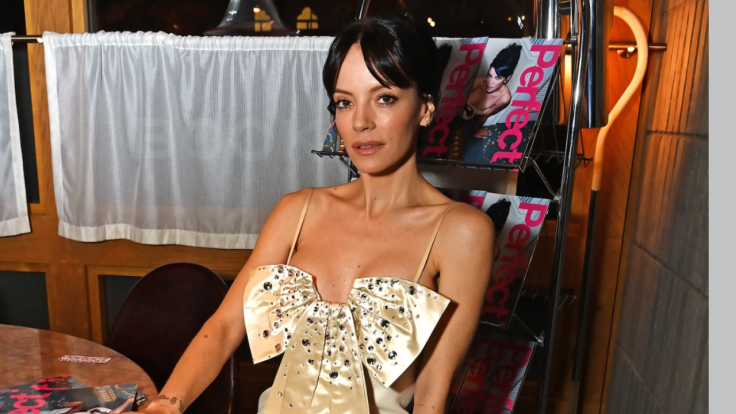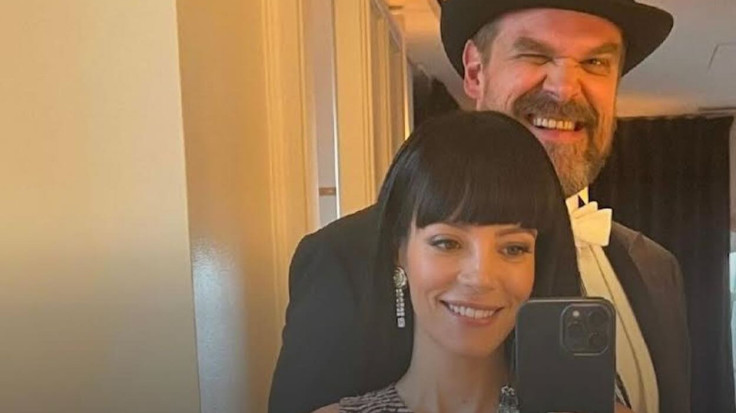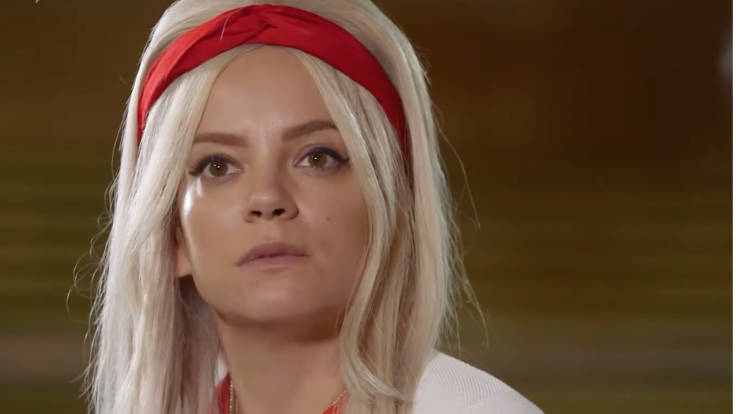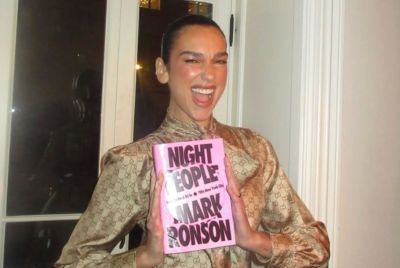Lily Allen, David Harbour Divorce: Songstress' 'Revenge' Album Was 'Act Of Desperation' In Crisis
Lily Allen calls her new album an 'act of desperation' amid her divorce from David Harbour.

When Lily Allen drops a record, she rarely tiptoes around the truth, but her latest release feels less like an album and more like an exorcism of private demons. While the tabloids and social media are quick to brand it a 'revenge' album, Allen's output suggests something far more visceral: a survival mechanism.
The British singer has once again captured the global zeitgeist, but this time, the applause is accompanied by a collective gasp. With the release of her fifth studio album, West End Girl, Allen has seemingly ripped the bandage off her separation from Stranger Things actor David Harbour, exposing the raw and often brutal reality of a marriage in collapse.
The Painful Separation of Lily Allen and David Harbour
To understand the gravity of this record, one must look at the timeline of the relationship between Lily Allen and David Harbour. The pair tied the knot in a whimsical Las Vegas ceremony in 2020, yet by February of this year, they had confirmed that they had split.
While the public announcement was clinical, the private reality was devastating. At the time, Allen chose silence regarding the specific details of the breakup, though she was transparent about her deteriorating mental state.
In January, she stepped back from her podcast, Miss Me?, offering a glimpse into her internal struggle. 'I'm just really not in a good place. I know I've been talking about it for months, but I've been spiralling and spiralling and spiralling, and it's got out of control', she told her listeners.
The pain was seemingly all-consuming. 'I can't concentrate on anything except the pain that I'm going through, and it's really, really hard', she admitted, noting that she had suffered a panic attack at the podcast team's Christmas party.
Speaking to Perfect magazine just before the album dropped, Allen provided context for the chaos. 'It was hard to make this record. It was incredibly manic, and it was emotionally traumatic.' She described the creative process as her method 'of processing things' occurring in her 'private life'.

How West End Girl Exposes the Life of Lily Allen and David Harbour
The narrative woven through West End Girl left fans absolutely stunned. The album paints a portrait of a woman heartbroken by a partner who coerced her into an open relationship. Although Allen is legally 'prevented from discussing specifically' the 'details about the demise of her recent marriage,' and never names him directly, the audience has drawn their own conclusions regarding Lily Allen and David Harbour.
The tracks detail a partner who grew resentful when Allen landed a prestigious acting role in London in the summer of 2021, subsequently asking to open the marriage. Allen reluctantly agreed to a 'strangers only' rule, only to discover he was conducting full-fledged affairs.
The imagery in the song Pussy Palace is particularly visceral, describing the discovery that her partner was using their West Village home for illicit trysts.
She sings: 'I found a shoebox full of handwritten letters / From brokenhearted women wishing you could have been better / Sheets pulled off the bed / Strewn all on the floor / Long black hair probably from the night before / Duane Reade bag with the handles tied / Sex toys, butt plugs, lube inside / Hundreds of Trojans, you're so fucking broken / How'd I get caught up in your double life?'
The album outlines further betrayals, including a partner who blamed her for his infidelity, showing absolutely no empathy or concern for how his actions impacted her as she battled with her sense of self-worth. By the final track, listeners were ready to defend her, turning West End Girl into an immediate viral sensation.

Finding Validation in the Split Between Lily Allen and David Harbour
In the wake of the release, the overwhelming public support has offered Allen a sense of vindication. In a recent interview on CBS Mornings, she confessed that the listener reaction validated the confusion and pain she felt during the breakdown of the marriage between Lily Allen and David Harbour.
She revealed that the studio time was booked for November 2024, before the relationship fully imploded, and the songs were written as an 'act of desperation, actually'.
'At the time, I wasn't really even thinking about it as a commercial endeavour', she explained. 'While I was writing it, I wasn't really sure it was going to see the light of day. Up until relatively close to its release, I was always thinking: 'Is this something I want to share with the world?'
Holding onto the album for ten months proved to be 'a nightmare'. She noted, 'I think it's sort of stunted my healing process somewhat, and actually, since I've put it out, it's felt completely and utterly liberating. It was kind of hellish having it in the background'.
Ultimately, releasing the work was the correct decision for her career and her mental health. She described the response as 'affirming', specifically because she hadn't received that empathy during the relationship.
'I mean, it's amazing,' she said. 'I write music for myself and to make myself feel more normal. And when something connects with people, it's affirming, right? It's validating... And the things that I was experiencing in my life at the time, I wasn't really getting that validation for whatever reason'.
Hearing fans acknowledge how painful the situation was helped her realise the severity of her own trauma. 'So, to now have people listen to this record and to go: 'Yeah, that's really messed up, that's really painful, I can't imagine what it would be like to go through something like that' is like: 'OK, now I know why I had to drag myself into a treatment centre!' she added.
Allen clarified that the decision to enter the treatment centre was hers alone: 'Just to focus on my brain because I wasn't sleeping, I wasn't eating, I was really not in a good way.' This admission highlights that the album was born not just from heartbreak, but from a genuine personal crisis where art became the only tether to sanity.
While legal constraints may silence specific details, West End Girl speaks volumes about the cost of betrayal. Lily Allen has turned her 'desperation' into a chart-topping statement of resilience, proving that sometimes, the only way out is through the music.
© Copyright IBTimes 2025. All rights reserved.





















